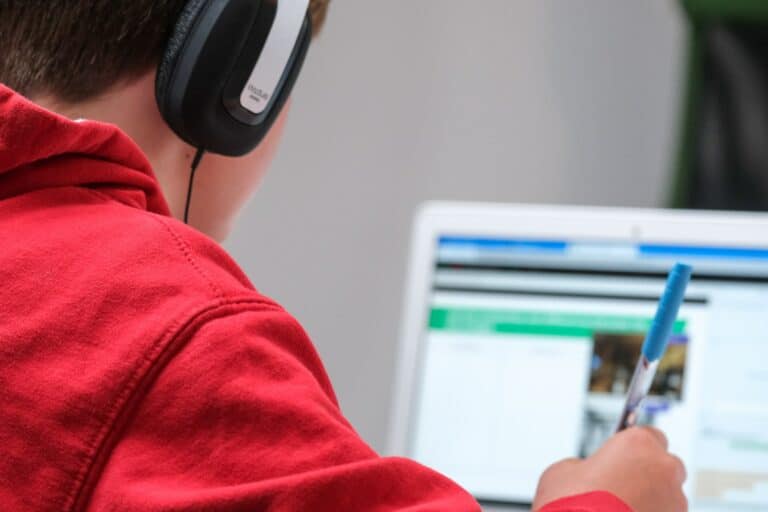Engaging in math exercises unlocks our brain’s potential to boost memory. Math exercises strengthen the brain’s ability to recall and remember important information. Through regular practice, these exercises improve cognitive functioning, enabling us to access data.
Math exercises also help to develop problem-solving skills. The brain can find solutions more effectively through engaging in these activities. People who are good at mathematics excel in problem-solving since they can easily identify patterns and understand complex information. Furthermore, math aids in creativity.
Individuals can create interesting patterns and designs with minimal effort using mathematical equations. In addition, this process allows kids to explore new ideas and approaches to a problem or task.
Mental arithmetic plays a significant role in brain development. It strengthens neural pathways and stimulates cognitive activity. Studies show that regular mental arithmetic practice improves memory sharpness, concentration, reasoning abilities, problem-solving skills, and creative thinking.
Additionally, mental arithmetic boosts mental health by providing better control over emotions, improving mood, and reducing stress. Students perform better in school by improving their test scores and understanding mathematical concepts.
Math Puzzles Boosts Analytical Skills
Unpuzzling your brain with a puzzle can be an exhilarating experience. Puzzles challenge the brain to access stored information, analyze data, and use logic to develop solutions. Engaging in such activities often makes our brains more agile, flexible, and capable of complex thought processes.
Math puzzles are useful since they require us to use both analytical and creative thinking. They improve kids’ problem-solving skills and strengthen their working memory, as we must remember certain facts to solve the puzzle. In addition, math puzzles inspire creativity as kids explore different approaches to solving a problem.
Improving the Basic Number Sense
Math improves a child’s basic number sense and provides a framework for complex problem-solving skills. It allows children to become familiar with addition, subtraction, multiplication, and division through repetition and practice. This familiarity enables them to process information faster.
As children progress through their math studies, they understand how to use certain processes for solving problems and organizing information. In addition, children learn to recall facts and figures using strategic thinking and problem-solving skills. As a result, they develop stronger memory and improve their attention span.
Incorporating Multi-Sensory Activities to Explore Math Concepts
Incorporate multi-sensory activities into teaching and memorizing math facts by using manipulatives. They give students a hands-on opportunity to explore mathematical concepts. For example, when teaching addition or subtraction, students can use base-10 blocks or counting bears to help them visualize their work. With multiplication, students can use tiles, beads, or links to help them build a better conceptual understanding.
Engaging in multi-sensory activities encourages students to think about mathematical concepts and relationships between numbers. Furthermore, using manipulatives helps students develop problem-solving skills and makes math more meaningful.
Multi-sensory activities help children learn and retain math facts. Children better understand the concepts they are learning by engaging multiple senses, such as sight, sound, smell, touch, and taste. For example, using counters or flashcards visualizes the numbers and equations they are learning. Engaging a mix of senses makes it easier for kids to make connections between the concepts and reinforce their understanding.
Maths tutoring can use rhymes and chanting to help children remember math facts. The rhythm and rhyme of these activities create an auditory pathway in the brain that aids in memorizing facts. In addition, music is a teaching tool. Songs incorporating math facts and equations make learning more fun and reinforces understanding.
Tactile activities such as drawing or writing math problems with fingers or chalkboards familiarize kids with numbers and equations. Students build a physical connection to their learning concepts by drawing or writing.
Mid-Task Self Questioning
Self-questioning can be a challenging process for some young learners. Still, with proper teacher guidance and support, it can become a powerful tool for improving math comprehension and retention.
Questions should be age-appropriate, specific to the task, and tailored to a kid’s needs. Educators can provide verbal prompts or ask clarifying questions if they get stuck or need guidance. Educators should also provide positive reinforcement when students correctly answer questions.
The Bottom Line
In conclusion, math is not only a subject to be mastered, but it also plays a crucial role in enhancing children’s memory and attention skills. The cognitive demands of math promote critical thinking, problem-solving, and memory consolidation, transferable skills applicable to various aspects of learning. Embrace the power of math as a tool for cognitive development and academic success!











